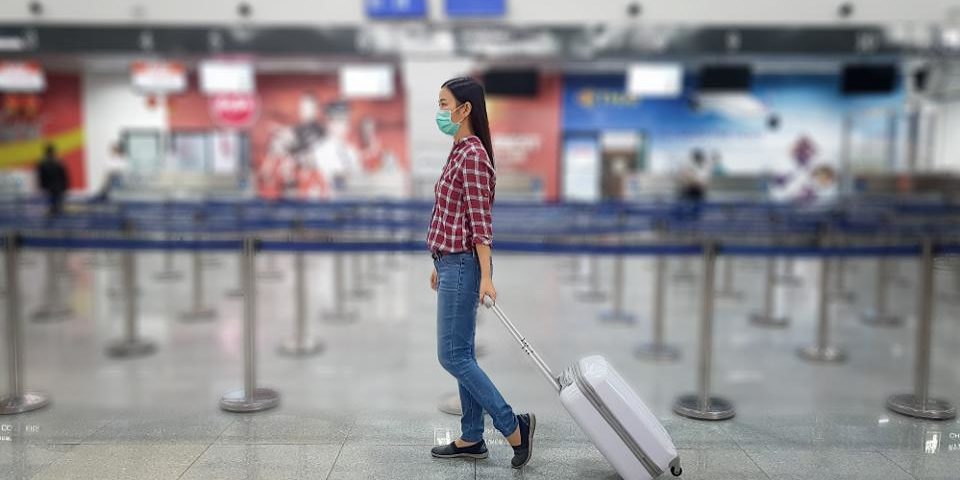On September 7, 2021, given that Canada’s COVID-19 the study of disease transmission stays under contorl, the Canadian Government expects to open its borders for optional travel by individuals from any country who have been completely immunized with Government of Canada-approved vaccines at least 14 days before entering Canada and who comply with all other requirements for entry.
With the coming of expanded immunization rates in Canada, declining COVID-19 cases and diminished stress on medical services, the public authority plans to bring various changes into force, given that Canada’s COVID-19 the study of disease transmission stays under control. On August 9, 2021, at 12:01 a.m. EDT, completely immunized green card holders and citizens of the United States (U.S.), who are residing currently in the U.S., will be allowed to enter Canada for leisure (discretionary) travel. Travellers from the United States, who are not fully vaccinated, will continue to be prohibited from crossing the Canadian order. The same is true for all other foreign nationals unless they fall under the category of an exemption listed by the government pursuant to the Quarantine Act.
To be qualified to enter Canada, completely vaccinated American permanent residents and citizens must have received the full series of an immunization – or mix of vaccines approved by the Canadian government no less than 14 days preceding entering Canada. As of now, the approved vaccines are produced by Pfizer-BioNTech, Moderna, AstraZeneca/COVISHIELD, and Janssen (Johnson and Johnson). Individuals may have received their immunization in any country, and should give proof supporting their inoculation in English, French or with an certified translation.
Furthermore, completely immunized travellers must:
Upload COVID-19-related data electronically through ArriveCAN (application or online interface) including confirmation of vaccination before leaving for Canada;
meet the testing prerequisites prior to entry;
be asymptomatic upon presentation at the Canadian border; and
have a paper or duplicate of their immunization documentation in English or French (or certified translation) and be prepared to show a border officer upon request.
Everyone should in any case prepare an appropriate plan for quarantine, and be ready to isolate, should they not meet the entirety of the conditions needed to be absolved from quarantine. They will likewise be needed to follow general public health rules in place, like checking for signs and side effects of COVID-19, wearing a face mask as required and keeping a duplicate of their immunization documentation and test results – in addition to a list of people and places visited – for 14 days after crossing the Canadian border. For air travel, travelers are required to continue wearing a face mask while in all Canadian air terminals and on board planes to, from and inside Canada, with few exemptions, and even if they are fully vaccinated.
What rules change August 9, 2021?
Travel to Canada
Permit non-essential (leisure) travel for American permanent residents and citizens, presently living in the U.S., who are fully vaccinated and comply with all other requirements. This requirement includes the obligation to submit data electronically through ArriveCAN.
Permit travel to Canada for unvaccinated kids under 12 years old, or unvaccinated dependent children (because of a physical or psychological condition), who are U.S. citizens or permanent residents, living in the U.S. who are travelling with a completely vaccinated guardian or parent, permitted to travel to Canada (ie: Canadian PRs & Citizens) or U.S. citizen or permanent resident currently on the list of exempted travellers under the Quarantine Act.
Individuals who don’t meet all the necessary qualification prerequisites for non-essential (discretionary) travel will be prohibited from accessing their flights, as well as may be fined.
Testing Requirements
Canadian permanent residents and citizens may do their testing in Canada if they are entering the United States for under 72 hours.
Those with a prior COVID-19 infection who have recovered, yet keep on testing positive, may use the alternative of a positive COVID-19 molecular test result on an example taken 14 to 180 days preceding crossing the Canadian border.
Change testing on arrival for travellers who are fully vaccinated. Travellers won’t require a test after arrival in Canada except if they have been randomly chosen to finish a Day 1 COVID-19 molecular test by a Canadian officer.
There are no changes to the obligatory testing of unvaccinated travellers to Canada.
Requirements for Quarantine
Abolish the hotel-stay in a Canadian government approved hotel on August 9.
Unvaccinated travellers will have to continue providing a Day 1 and Day 8 COVID-19 PCR tests, and complete a compulsory fourteen day quarantine isolate.
Unvaccinated kids under 12 years old and dependent children (because of a psychological or physical condition) of completely inoculated travellers will not have to complete a full fourteen day quarantine, however should follow public health measures. This includes kids going to the U.S for discretionary purposes. However, these children should not attend camps or daycares or other group settings for 14 days after arrival in Canada. Unvaccinated kids will stay subject to the Day 1 and Day 8 testing PCR tests. Each Province & Territory will elaborate on specific conditions for those returning to Canada in the upcoming days and weeks.
While Canada keeps on moving in a positive direction, the vaccine coverage and epidemiology is inconsistent in different parts of the world. The Government of Canada continues to recommend that Canadians to stay in Canada and avoid unnecessary travel outside Canada due to the risk abroad.


